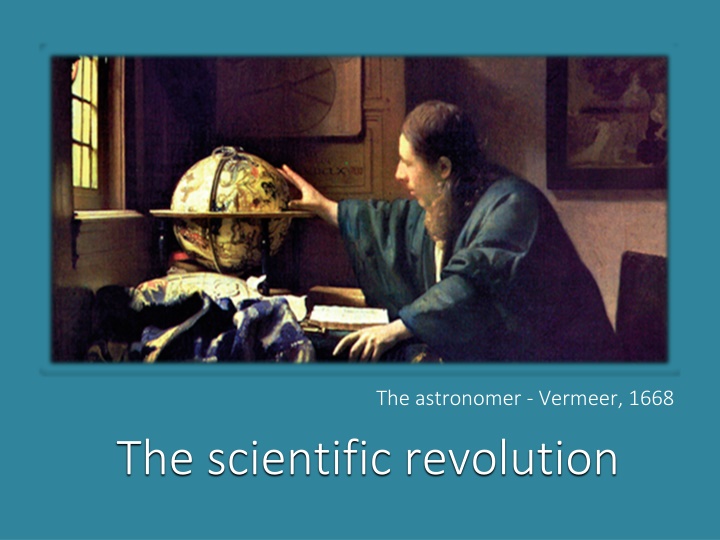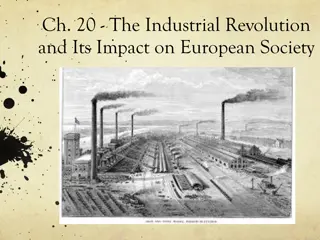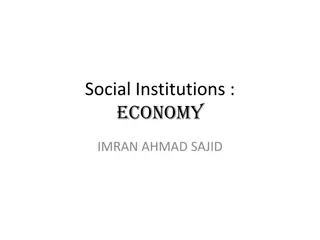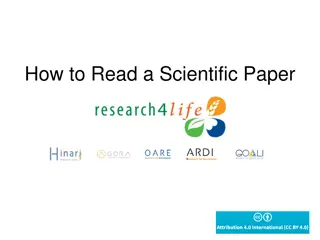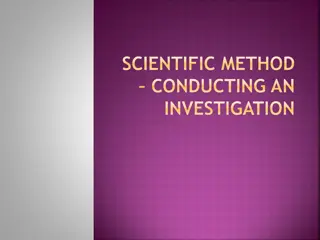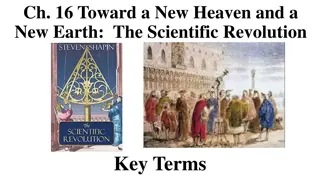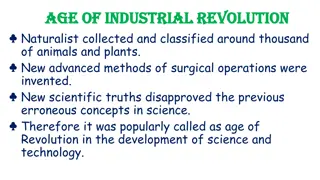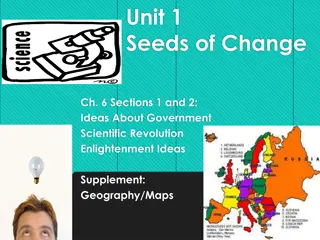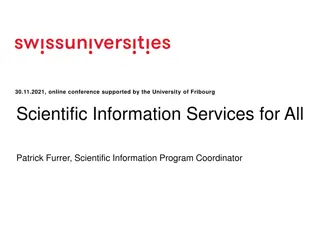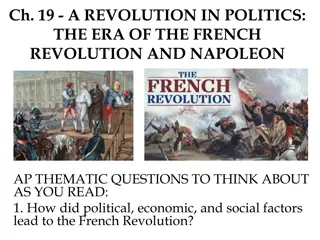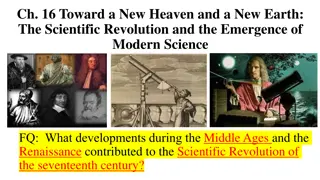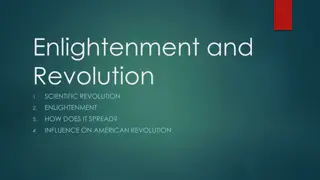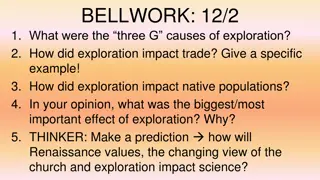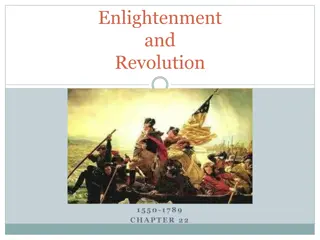The Scientific Revolution: Advancements in Understanding the Natural World
The Scientific Revolution of the 17th and 18th centuries brought significant changes to European thought, with the development of new scientific methods and institutions like the Royal Society in London. Prominent figures such as Galileo Galilei, Johannes Kepler, and Isaac Newton played crucial roles in advancing the study of the physical world through observation, experimentation, and mathematical reasoning. This period marked a shift towards empirical research and the pursuit of knowledge through reason and evidence.
Download Presentation

Please find below an Image/Link to download the presentation.
The content on the website is provided AS IS for your information and personal use only. It may not be sold, licensed, or shared on other websites without obtaining consent from the author.If you encounter any issues during the download, it is possible that the publisher has removed the file from their server.
You are allowed to download the files provided on this website for personal or commercial use, subject to the condition that they are used lawfully. All files are the property of their respective owners.
The content on the website is provided AS IS for your information and personal use only. It may not be sold, licensed, or shared on other websites without obtaining consent from the author.
E N D
Presentation Transcript
Testo The astronomer - Vermeer, 1668 The scientific revolution
Table of contents New scientific methods The royal society Newton s view of the universe
What does the word method mean? Method means a procedure, technique or a set of rules employed in an activity or to approach the problems of truth and knowledge. The concept of method probably came from the Greek philosopher Socrates (ca 469-399 BC) The Socratic method was applied in philosophical discussion regarding ethics and politics
There are three different approaches to the study of natural phenomena: deductive method deductive method: the conclusion necessarily follows from the premises (logic, mathematics and geometry). experimental method experimental method: formulation of hypotheses and their verification through experience. It moves from the particular to the universal (physics, chemistry and biology). classification method: placing the organism into a group, class or family according to its biochemical, anatomical or physiological characteristics (biology). classification method
The first half of the 17th century in Europe is characterized by the process of the scientific method scientific method. The scientific method is the study of the physical world by sensory observation and experiment, by mathematical measurement and inductive reasoning. It had been established by Galileo Galilei Galileo Galilei and Johannes Kepler Johannes Kepler. In England the first age of science culminated with the work of Isaac Newton Isaac Newton, who demonstrated the laws of gravity and the motion of planets.
The Royal Society In 1662 the Royal Society was founded in London II s patronage. At the same time, London was the centre of the development of the new scientific philosophy development of the new scientific philosophy. London with King Charles centre of the It is the oldest scientific academy in continuous existence; it aims to expand the knowledge by the development and use of science, mathematics, engineering and medicine for the benefit of humanity and the planet. The motto of the society nullius in verba was a direct challenge to the dependence of the old philosophy on written authorities. From 1660 some of the typical traits of the English character began to emerge: a materialistic and practical mind, tolerance, reasonableness and common sense.
Newtons view of the universe The most important change of European thought in 17th - 18th century was the scientific revolution scientific revolution. Scientific revolution implied: systematic doubt, empirical and sensory verification, the division of human knowledge into separate sciences and the view of the world as a machine. There are three sides in the debate of scientific method: Portrait of Isaac Newton in 1689 b y Godfrey Kneller the Aristotelians the Aristotelians: they analyze the nature of things through mathematics, experiments and logical arguments starting from a few basic premises. Francis Bacon s school Francis Bacon s school: he professed the inductive method. He believed scientific should collect all the data possible through experimentation and observation
Ma Mathematical thematical - - deductive approach deductive approach Isaac Newton believed in the mechanical univers the universe could be explained completely through the use of mathematics mathematics. mechanical universe. He thought He believed all the planets and other objects moved according to a physical attraction between them: gravity gravity. Newton based his view of the universe on the concept of inertia inertia.
